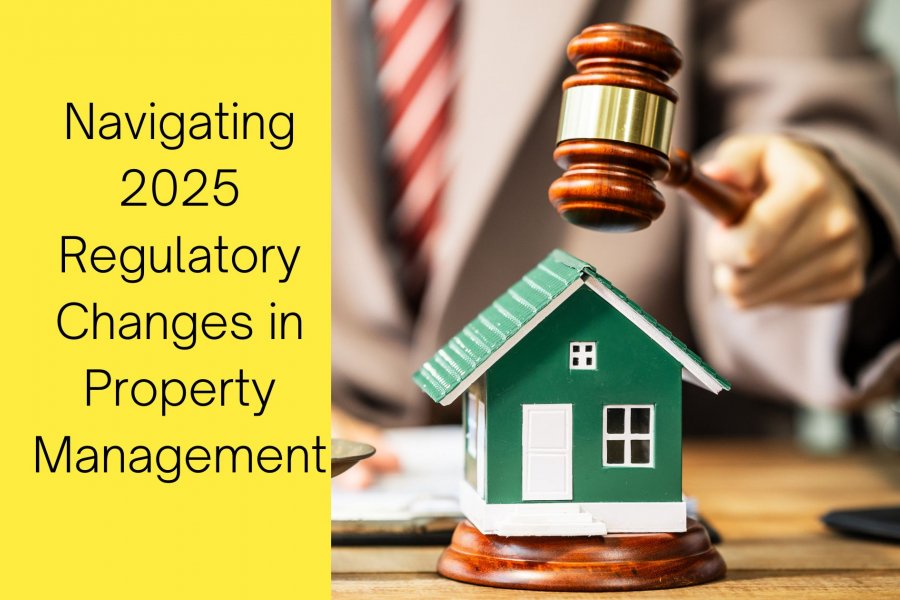
Key Takeaways
- Compliance is More Complex and Localized – With tighter rent caps, expanded tenant protections, and stricter eviction rules varying by both state and city, landlords must track multiple layers of regulation to avoid fines and legal disputes.
- Transparency and Sustainability are Becoming Business Essentials – Requirements like itemized deposit deductions, rent adjustment documentation, and mandatory energy upgrades not only keep landlords compliant but also improve tenant trust, reduce turnover, and make properties more competitive.
- Property Managers Help Landlords Adapt and Stay Ahead – From updating leases and monitoring legal changes to coordinating eco-friendly upgrades and handling tenant communications, professional management teams reduce compliance risks and free landlords to focus on long-term growth.
The rental housing market never stands still, and 2025 is proving to be a turning point. From tighter rent caps to mandatory energy upgrades, new laws are reshaping how landlords operate. What once worked may no longer be legally compliant, or financially smart.
For property owners, the challenge is to adapt quickly or risk penalties, disputes, and falling behind competitors. But these shifts also present opportunities to modernize operations, strengthen tenant trust, and future-proof investments. In this article, we at Mark Thomas Properties PM will help owners navigate regulator changes in 2025.
Learn how we can help you maximize your home’s potential.
Rent Control
One of the most visible changes this year comes in rent regulation. States facing affordability crises are tightening the rules around how much landlords can increase rents.

But, local governments can impose even stricter ceilings. A city with a severe housing shortage might lower the cap further, leaving landlords little wiggle room. To be a successful property owners you need to track both state and municipal guidelines, as compliance is non-negotiable and fines for violations can be steep.
Transparency: A Legal Duty and Business Advantage
A recurring theme in new regulations is transparency. In many regions, landlords must provide itemized receipts for any deductions from security deposits, clear documentation for rent adjustments, and upfront disclosures about property conditions, fees, and maintenance procedures.
Tenants view these requirements as evidence of fairness. As such, compliance with disclosure laws not only keeps you legal but also improves tenant relationships, reduces vacancy rates and turnover, and strengthens your reputation in a crowded rental market.
Tenant Protections
Another defining trend in 2025 is the expansion of tenant rights. Lawmakers are emphasizing stability, particularly for renters relying on housing assistance or living in tight markets.
These changes can impact everything from notice periods to eviction procedures. Ignoring these changes exposes landlords to legal challenges and reputational damage. Property owners must ensure their processes align with updated rules.
Sustainability Mandates
Climate concerns are becoming a major point of discussion in the real estate world, and they’re shaping policy. Some state are even rolling out aggressive sustainability standards that landlords must meet. Required upgrades vary but can include the addition of efficient HVAC systems, LED lighting, smart thermostats, and water-saving fixtures.

On the surface, these improvements may feel like added costs. But they come with benefits like lower utility bills, potential tax credits, and increased appeal to eco-conscious tenants. Even if you aren’t currently mandated to make these changes, in competitive urban markets, promoting your property as “green” can be the differentiator that keeps occupancy high.
Learn how we can help you.
How to Stay Compliant
The wave of new regulations can feel overwhelming, especially for landlords juggling multiple properties or operating across state lines. But the following disciplined practices can make a difference:
- Stay Informed - Subscribe to housing authority newsletters, join landlord associations, and attend webinars. Legal landscapes shift quickly, and awareness is your first defense.
- Update Lease Templates - Don’t recycle last year’s leasing agreements. Ensure each lease agreement reflect current notice periods, disclosure requirements, and rent control provisions.
- Document Everything - Keep detailed records of communications, repairs, rent changes, and inspections. Documentation isn’t just good practice, it’s your legal shield if disputes arise.
- Consult Professionals - A real estate attorney or experienced property manager can audit your processes and highlight blind spots.
- Educate Tenants - Don’t just adjust policies quietly, communicate them. Clear explanations reduce confusion, prevent conflict, and build trust.
Why Many Landlords Turn to Property Management
For new landlords or foreign investors, keeping up with 2025’s changes can eat up time and energy. That’s why more owners are partnering with property management companies.

A qualified management team can:
- Track and implement new legal requirements automatically.
- Handle lease updates, renewal notices, and eviction documentation.
- Advise on competitive rent pricing while staying within caps.
- Coordinate sustainability upgrades and apply for incentives.
- Serve as a buffer between landlords and tenants, ensuring communication is professional, prompt, and documented.
Perhaps most importantly, professional property managers free landlords to focus on growth rather than paperwork. Instead of scrambling to interpret new notice rules or security deposit requirements, you can concentrate on acquiring new properties or planning long-term real estate investment strategy.
Seeing Change as Opportunity
Yes, 2025 brings new compliance challenges. But it also creates a chance to reset and strengthen your approach. Rent control caps push landlords to think creatively about adding value through amenities or upgrades. Tenant protection laws encourage better communication and planning. Sustainability mandates drive long-term savings and attract new generations of renters.
In other words, these laws don’t just protect tenants, they can also help North Carolina landlords modernize, differentiate, and remain profitable in a competitive environment.
Bottom Line
The real estate rules of 2025 mark a new era for landlords. Rent caps, tenant protections, transparency requirements, and sustainability standards are becoming the norm in many areas. Property owners who resist change risk fines, vacancies, and reputational harm. Those who adapt early, however, can build stronger tenant relationships, reduce turnover, and position their rentals as modern, compliant, and desirable residences.
To stay compliant and profitable partner with experts who understand the legal landscape, streamline your operations, and protect your investment in a rapidly shifting market. Contact our property management team today!
